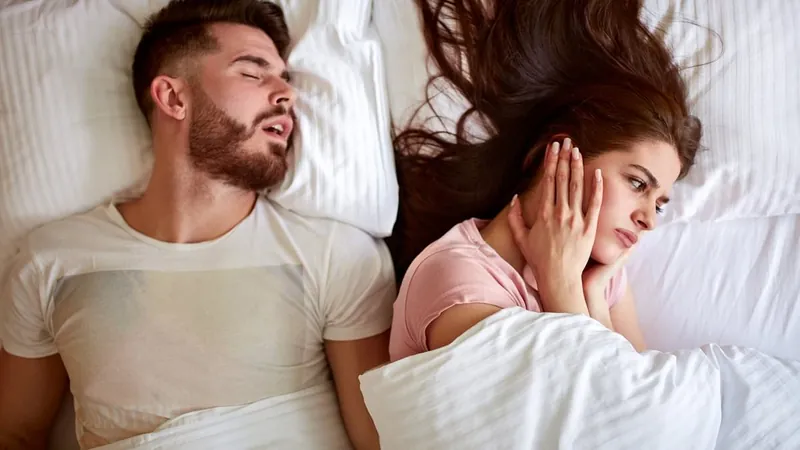
This Surprising Nighttime Habit Could Be a Gateway to Dementia and Stroke!
2025-09-02
Author: Ying
Snoring: A Hidden Threat to Your Brain Health
Attention snorers! Leading neurologist Dr. Baibing Chen, known as Dr. Bing on TikTok, has issued a startling warning about the dangers of snoring. His viral video, viewed by over 158,000 followers, outlines how this common nighttime nuisance could potentially raise your risk for dementia and strokes.
Dr. Bing explains that loud or frequent snoring can disrupt your breathing during sleep, effectively cutting off oxygen to your brain repeatedly. This can lead to tiny injuries in your blood vessels, contributing to what's known as silent strokes and an increased risk of dementia down the line.
He went on to emphasize that snoring can actually alter brain structure, with MRI scans revealing a loss of grey matter in critical areas involved in memory and cognitive function. The more someone snores, the smaller these brain regions can become, particularly the hippocampus—essential for memory retention.
But that's not all! Dr. Bing warns that snoring isn't just an annoyance for your partner; it could be messing with your cognitive abilities during the day as well, leading to slower thinking and difficulty concentrating.
The Silent Epidemic of Sleep Apnea
Interestingly, Dr. Bing notes that this can be a problem even for those who don’t exhibit full-blown sleep apnea—a serious condition characterized by frequent breathing interruptions during sleep. Snoring itself can disturb deep sleep stages, particularly N3, which is crucial for feeling refreshed and revitalized.
The vibrations caused by snoring may rouse your brain, compromising the much-needed restorative sleep that helps clear out toxins and repair brain function.
Beyond Snoring: Additional Health Risks
Experts also caution that snoring can pave the way for other serious health concerns such as hypertension, heart disease, stroke, and type 2 diabetes. In fact, it’s estimated that around 15 million people in the UK suffer from sleep apnea.
Dr. Pavol Surda, a specialist in sleep disorders, explains the difference between the two types of sleep apnea: Central Sleep Apnea (CSA) and Obstructive Sleep Apnea (OSA). CSA occurs when the brain fails to send proper signals to the breathing muscles, while OSA is due to airway obstruction by relaxed throat muscles.
What Can You Do About It?
While snoring may feel trivial, it can have significant repercussions. So, what’s the solution? Fortunately, there are lifestyle changes that can help, such as losing weight, quitting smoking, reducing alcohol intake, and changing your sleeping position.
If you suspect you or a loved one may have sleep apnea, seeking professional evaluation is essential. Treatment options include lifestyle changes, CPAP therapy, oral appliances, or even surgery in severe cases.
Taking action now could mean the difference between a restless night and a life that's not only snore-free but also healthier for your brain!





 Brasil (PT)
Brasil (PT)
 Canada (EN)
Canada (EN)
 Chile (ES)
Chile (ES)
 Česko (CS)
Česko (CS)
 대한민국 (KO)
대한민국 (KO)
 España (ES)
España (ES)
 France (FR)
France (FR)
 Hong Kong (EN)
Hong Kong (EN)
 Italia (IT)
Italia (IT)
 日本 (JA)
日本 (JA)
 Magyarország (HU)
Magyarország (HU)
 Norge (NO)
Norge (NO)
 Polska (PL)
Polska (PL)
 Schweiz (DE)
Schweiz (DE)
 Singapore (EN)
Singapore (EN)
 Sverige (SV)
Sverige (SV)
 Suomi (FI)
Suomi (FI)
 Türkiye (TR)
Türkiye (TR)
 الإمارات العربية المتحدة (AR)
الإمارات العربية المتحدة (AR)